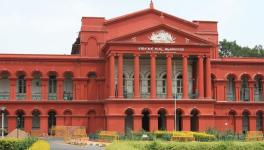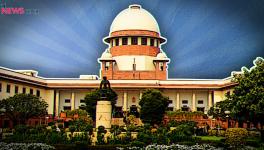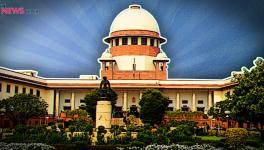Can the Government Listen to the Discontent Among the Judiciary?

Image Courtesy: The Print
Justice Kurian Joseph’s letter dated April 12, acts as another wake-up call to the higher judiciary in India. Earlier in March, Justice Chelameswar too had penned a letter of similar nature. The issues highlighted in both the letters are a part of a disturbing trend of executive interference in judicial appointments. In March, the Advocates’ Association, Bengaluru had demanded a solution on the government’s interference in judicial appointments. Proceedings of the Calcutta High Court have been ceased since last month, when Bar Associations across Kolkata decided to shut down – protesting the delay in appointment of the High Court judges. Across India, High Courts are reeling under the slow progress in appointing judges.
Justice Joseph accused the government of “sitting over on the recommendations of the Collegium doing nothing” and committing “abuse of power” under administrative laws. He stated that this act of the government sends a message to other Judges that they should not cause the government any displeasure, or else they can be made to suffer. In doing so, the government has attacked the independence of the Judiciary. Referring to the suo motu hearing of Justice Karnan’s case, Justice Joseph suggested that a similar hearing be conducted to pass Orders on this issue. Justice Chelameswar’s letter, on the other hand, had highlighted how the government was interfering with the appointment process by interfering with internal disciplinary processes in the judiciary. Justice Chelameswar also recommended a sitting of the Supreme Court Judges to deliberate on this issue.
Both Justice Joseph as well as Justice Chelameswar were among the four Judges, who held the unprecedented press conference in January. They had raised questions regarding the Judiciary’s independence, as well as had put forth concerns about the manner in which the roster was being determined by the Chief Justice. Since then, various Bar Associations across the country have come out in their support. The advocates of the Calcutta High Court have been demanding that more Judges be appointed to the Court to diminish the backlog of the cases. They have also demanded that a permanent Chief Justice be appointed, since the Court has been functioning with an acting Chief Justice for two and a half years. It has also been functioning with less than half its sanctioned strength.
The Advocates’ Association, Bengaluru had demanded a meeting with the Chief Justice of India, the Union Law Minister, and the Attorney General to discuss the government’s interference in Judicial appointments. They had pointed out that with half the courtrooms empty, the number of cases to be heard by each Judge had risen to between 120 to 130 per day. This massive load will only add to the growing backlog of cases. As of March 14, there were over 143 names pending for judicial appointment in High Courts across India.
Now that Justice Kurian Joseph too has raised his voice to protect India’s judicial independence, what is to be seen is what steps will be taken in this regard. Some protesting advocates have stated that the current situation is worse than the ‘Emergency’. The difference between the two situations was that during the emergency, the government sought to ensure judicial compliance through overt acts. In the present circumstance, there are no actions, only omissions. This control over who gets elevated or appointed—as Justice Joseph succinctly put it—“sends a wrong message, which is loud and clear to all Judges down the line”. Justice Joseph recommended a ‘caesarean section’ be conducted to save the judiciary, otherwise as he put it, “history will not pardon us”.
Get the latest reports & analysis with people's perspective on Protests, movements & deep analytical videos, discussions of the current affairs in your Telegram app. Subscribe to NewsClick's Telegram channel & get Real-Time updates on stories, as they get published on our website.
























